Retro Replay Review
Gameplay
Desert Law offers a refreshing departure from traditional real-time strategy conventions by eliminating base construction altogether. Instead, the game centers on tactical skirmishes between small squads of armored vehicles, forcing players to think more like battlefield commanders than resource managers. Each mission presents a unique set of objectives—from holding defensive chokepoints against waves of marauding bandits to executing precision rescue operations under heavy fire.
(HEY YOU!! We hope you enjoy! We try not to run ads. So basically, this is a very expensive hobby running this site. Please consider joining us for updates, forums, and more. Network w/ us to make some cash or friends while retro gaming, and you can win some free retro games for posting. Okay, carry on 👍)
The control scheme in Desert Law will feel immediately familiar to fans of classic RTS titles such as Command & Conquer. Hotkeys and unit grouping function seamlessly, allowing for rapid deployment and micromanagement when the heat of battle intensifies. However, the absence of base building shifts the strategic emphasis entirely onto maneuvering, positioning, and effective use of terrain—narrow desert canyons, open salt flats, and ruined small towns all influence how you approach each engagement.
At the heart of the gameplay are the ‘hero’ characters, each with individual statistics that grow over the course of the 29-mission campaign. These heroes grant special bonuses to their mounted vehicles, whether that’s increased firepower, superior handling, or enhanced defensive capabilities. Balancing your squad composition—combining DPS-heavy gunners, agile scouts, and the indispensable mechanic who can repair damaged vehicles under fire—adds a layer of role-playing depth rarely seen in an RTS.
While the mission count is generous, Desert Law keeps things varied through environmental hazards and dynamic mission parameters. Sandstorms can reduce visibility and weapon accuracy, while dynamically collapsing overpasses or exploding fuel trucks force you to constantly adapt. The pacing rarely feels repetitive, and each mission’s narrow, combat-focused scope keeps adrenaline levels high.
Graphics
Visually, Desert Law strikes a distinctive balance between 2D and 3D elements. Backgrounds, such as the battered remains of old highways and the bleached expanse of desert wastelands, are rendered in richly detailed 2D art. These static backdrops blend seamlessly with fully 3D-modeled vehicles and destructible scenery—buildings crumble realistically under sustained fire, and debris clouds kick up dynamically during explosions.
The isometric camera angle is polished and functional, giving a clear view of your units and the surrounding battlefield. Animations for vehicle movement, weapon firing, and environmental destruction are smooth and satisfying, even on modest hardware. Careful attention to lighting effects—burning wrecks cast flickering glows on nearby terrain, while midday sun creates stark, high-contrast shadows—enhances the atmospheric post-apocalyptic vibe.
Comic book–style cutscenes bridge gameplay sequences, delivering story beats with hand-drawn panels and animated speech bubbles. The art style here is intentionally playful, matching the game’s light-hearted narrative moments and injecting personality into characters who might otherwise feel generic. These interludes are a treat for players who appreciate a bit of visual storytelling flair.
Though Desert Law’s graphics engine is a modified version of the one behind Nival’s Blitzkrieg series, it doesn’t feel outdated. Texture resolutions, particle effects, and unit models all hold up well, and the destructible elements give each firefight a cinematic quality. Whether you’re watching a fuel tanker erupt or seeing a bridge collapse to cut off enemy reinforcements, the visuals consistently reinforce the game’s high-stakes desert warfare theme.
Story
The narrative in Desert Law follows Brad, a peaceable community member whose world is shattered when raiders attack his hometown and abduct his girlfriend. What begins as a straightforward rescue mission evolves into a broader quest for vengeance and justice in the lawless southern states of post-apocalyptic America. The central plot is easy to follow, yet it’s peppered with humorous banter and unexpected twists that keep the tone light without undermining the stakes.
Comic book cutscenes are used to great effect, delivering character introductions, mission briefings, and key story developments between battles. These sequences feel handcrafted and personal, with expressive artwork and snappy dialogue that help you connect with Brad and his ragtag crew. While the overarching storyline doesn’t delve into deep political intrigue or moral ambiguity, it provides a satisfying motivation for each mission and keeps you invested in the outcome.
In-mission dialog also plays a role in fleshing out personalities. Veterans of the wasteland mock each other’s driving skills, the mechanic cracks jokes while patching up your turret, and Brad himself grows more determined as the rescue mission turns into something far larger. These moments of levity balance the relentless combat and help the squad feel more like a tight-knit team than just a set of units on a map.
Although the story follows familiar revenge-driven tropes, it stands out thanks to its charismatic protagonists and engaging presentation. By focusing on individual hero characters with upgradeable stats, Desert Law infuses its narrative with RPG-like depth, rewarding you not just for mission success but for keeping your favorite heroes alive and enhancing their personal abilities.
Overall Experience
Desert Law is an RTS that doesn’t just change the rules—it redefines them. By stripping away base-building mechanics, the game hones in on what makes real-time strategy thrilling: tactical decision-making, dynamic positioning, and high-stakes combat. Each of the 29 missions feels like a carefully crafted puzzle, with unique objectives and environmental twists that challenge your adaptability and keep the gameplay fresh.
The combination of isometric visuals, destructible environments, and comic book-style cutscenes creates a cohesive aesthetic that is both polished and distinctive. The modified Blitzkrieg engine powers smooth performance and satisfying particle effects, ensuring that every explosion and dust cloud heightens the sense of immersion in a ravaged desert world.
Story-wise, Desert Law doesn’t aspire to be a sprawling epic but succeeds admirably in delivering a concise, character-driven tale of love, loyalty, and retribution. Brad and his companions might fit familiar archetypes, yet their witty banter and evolving abilities give them memorable personalities. Keeping your heroes alive and watching them grow adds an emotional layer that elevates the combat beyond mere pixel-chasing.
For players seeking an RTS experience that prioritizes combat intensity and tactical depth over resource micromanagement, Desert Law is a standout choice. Its accessible controls, varied mission design, and engaging narrative make it suitable for both genre veterans and newcomers. If you’re looking to embark on a journey through post-apocalyptic highways with nothing but your wits—and a handful of armored vehicles—Desert Law delivers a thrilling ride from the first mission to the last.
 Retro Replay Retro Replay gaming reviews, news, emulation, geek stuff and more!
Retro Replay Retro Replay gaming reviews, news, emulation, geek stuff and more!
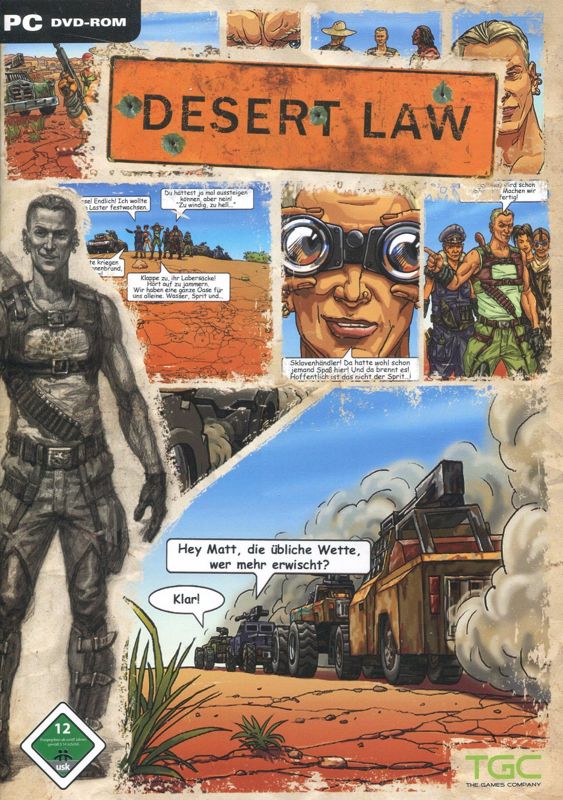
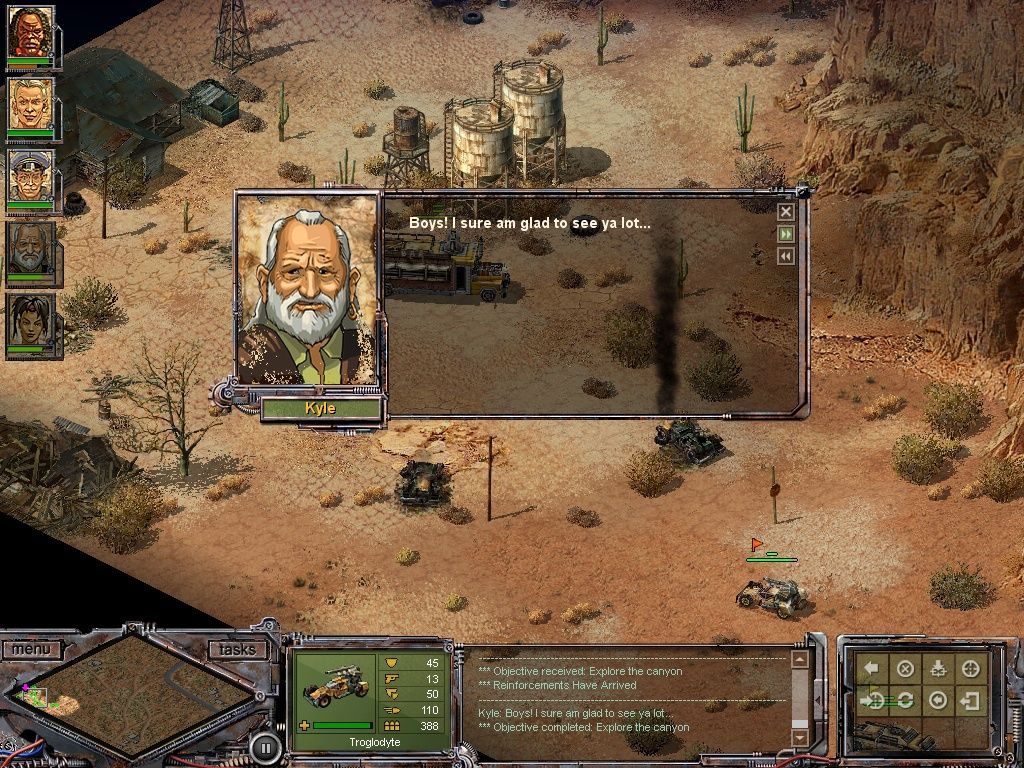
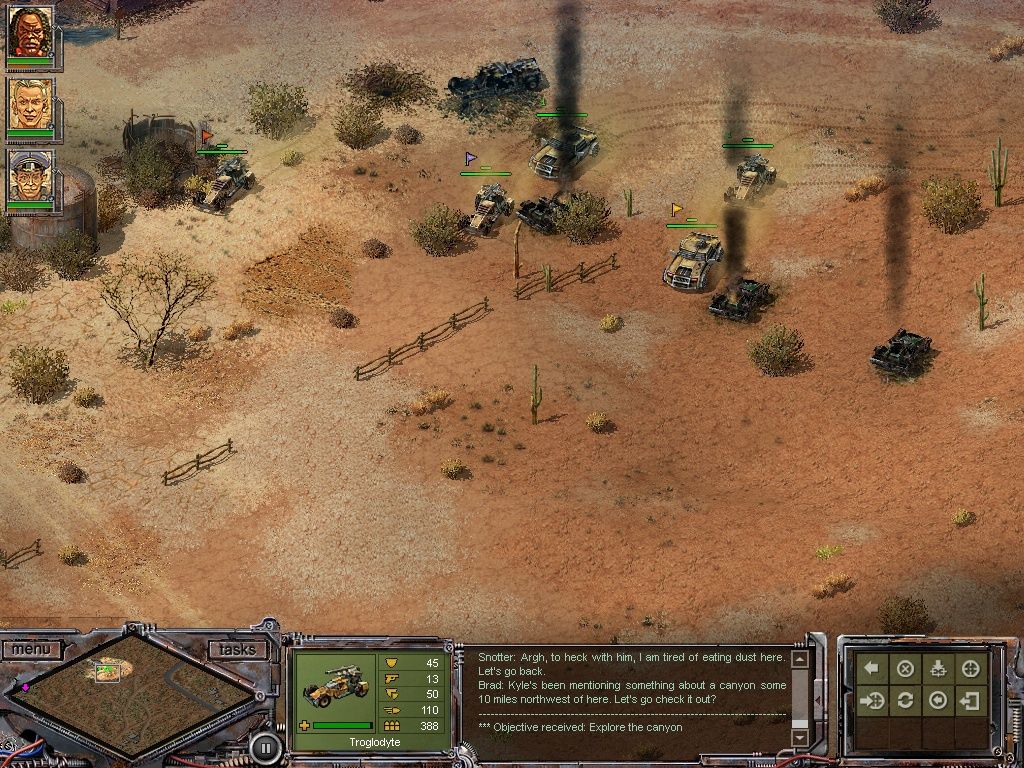
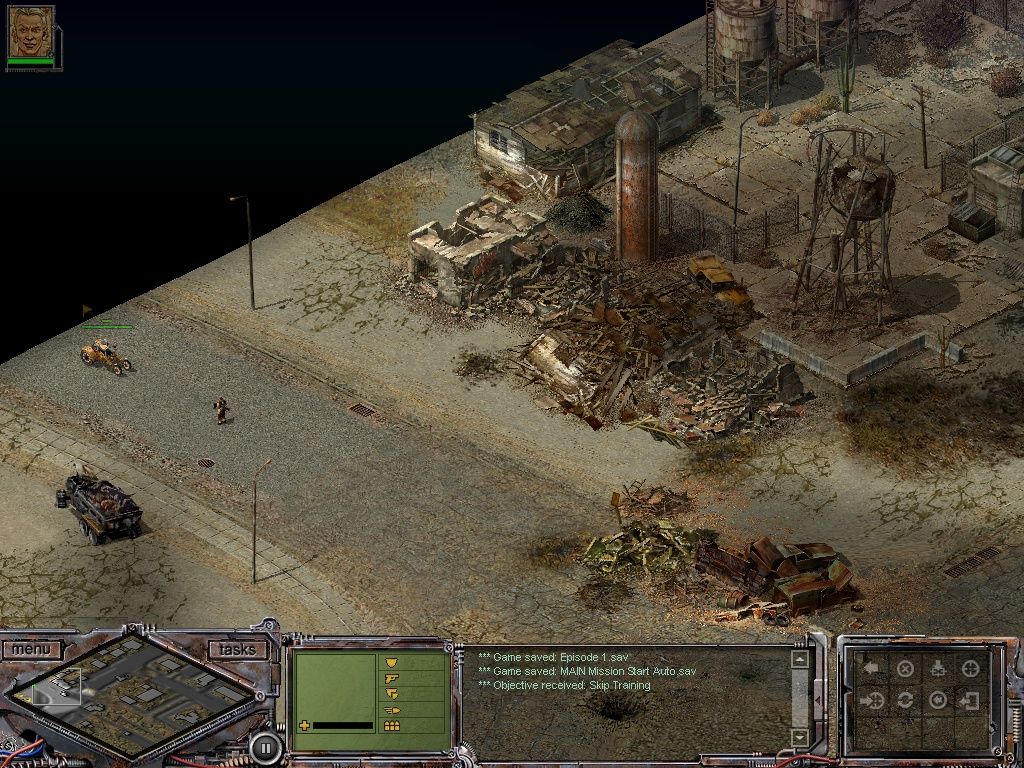
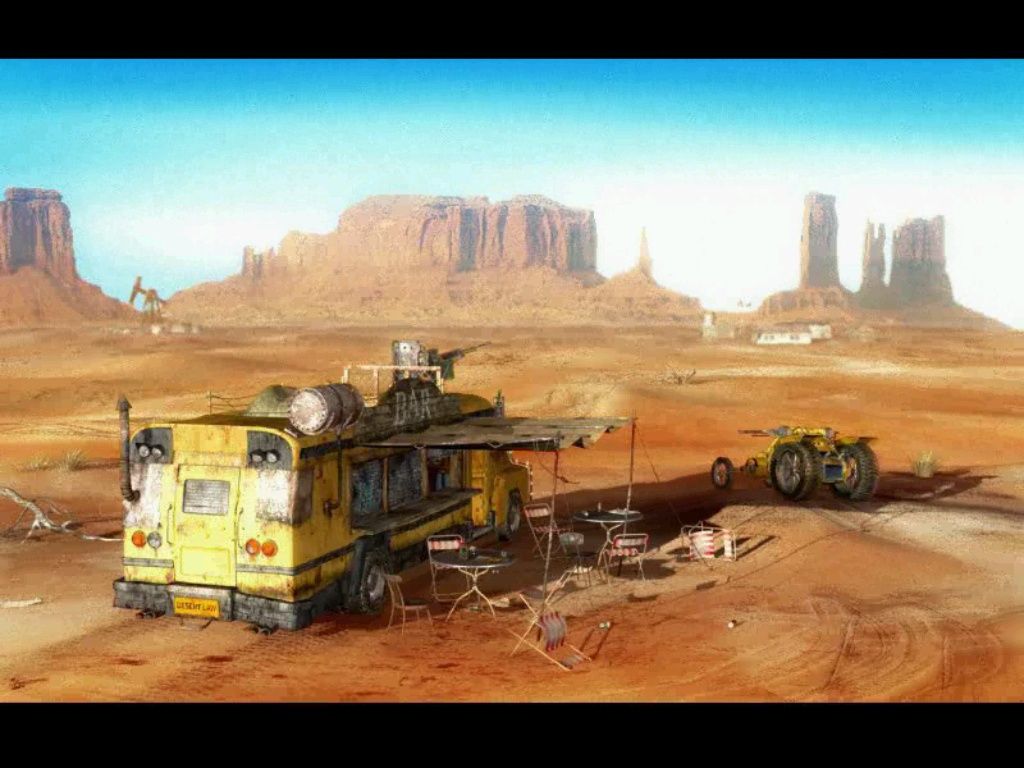
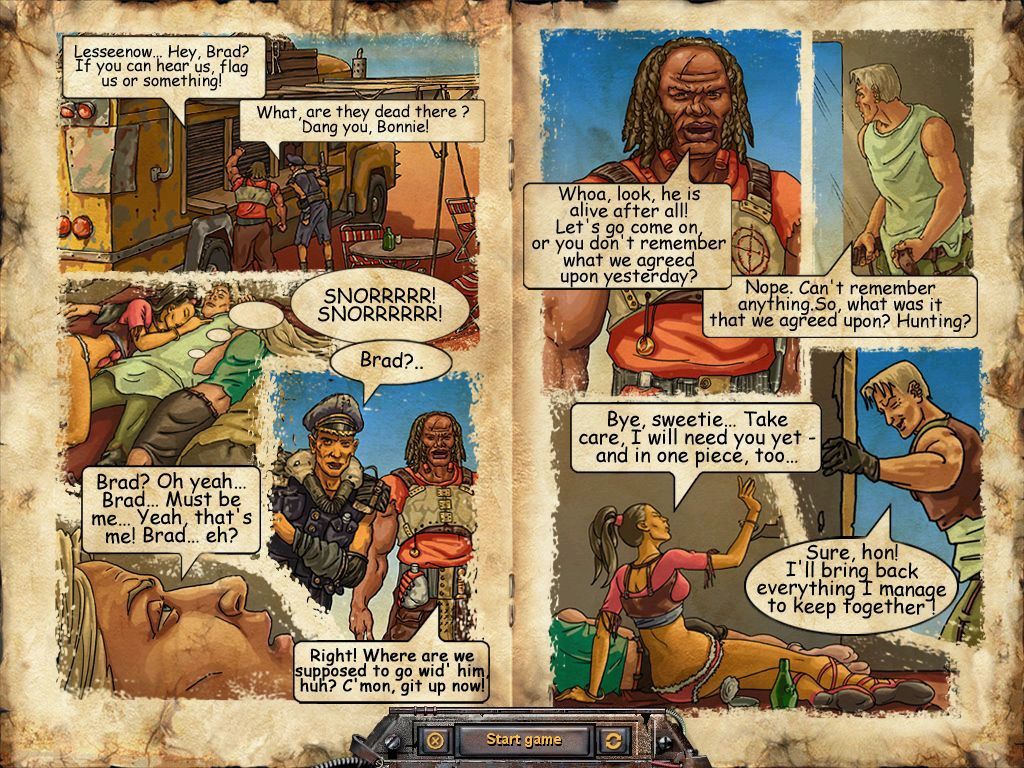



Reviews
There are no reviews yet.